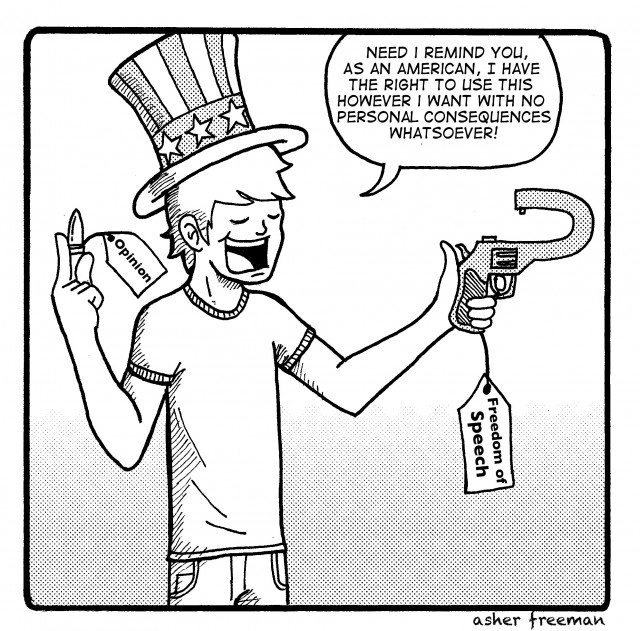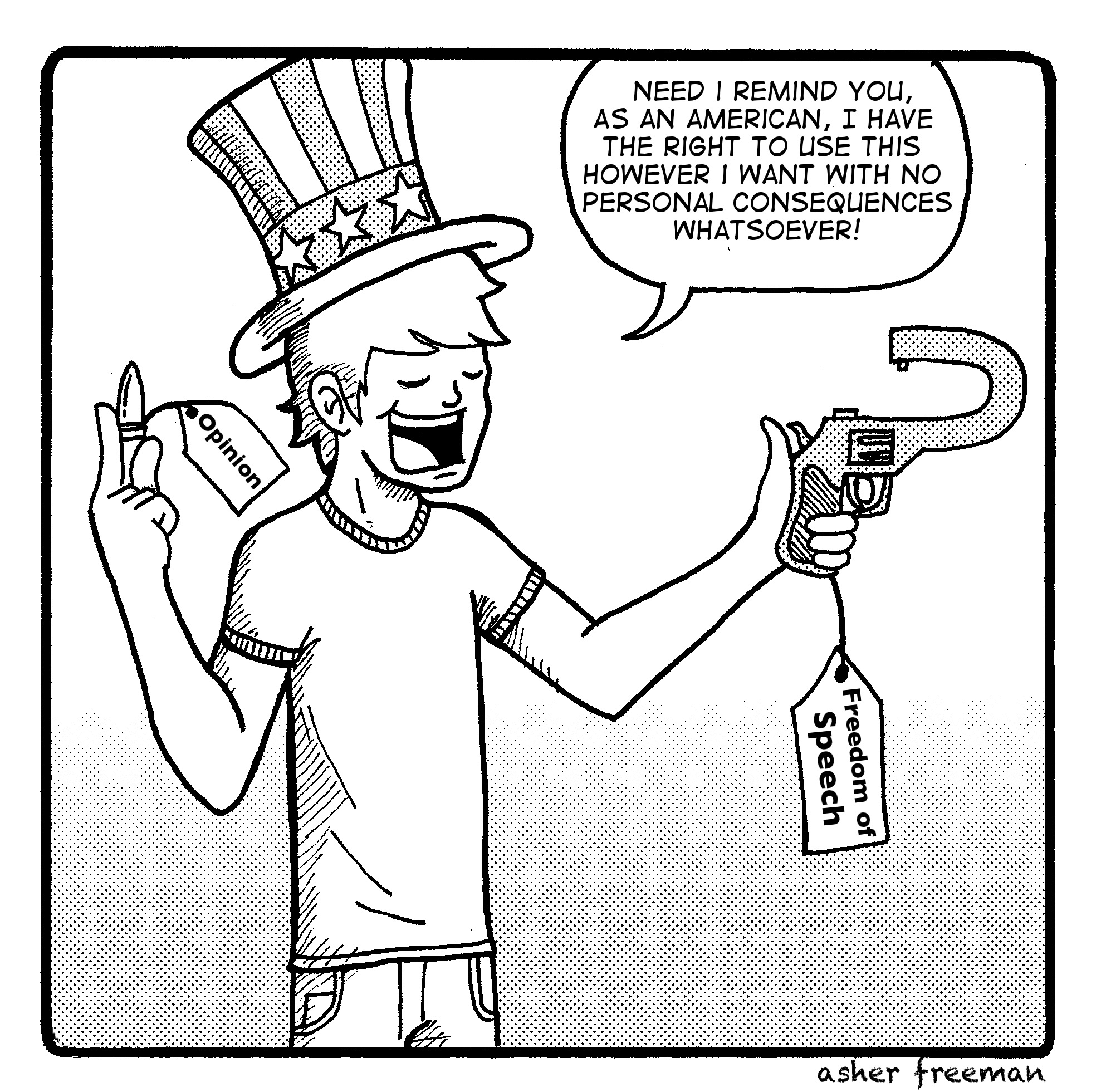
In the U.S. it’s completely permissible to have your own opinions and beliefs. However, people tend to forget there is still a line of social responsibility that cannot be crossed without equal repercussions. History has amply taught us that words can be just as deadly, if not more, than any physical weapon. In this case, it was a film.
Last week, on Sept. 11, an American ambassador and three of his staff were killed in a violent protest held by Libyans armed with machine guns and hand grenades in Benghazi. Los Angeles police have identified the man largely blamed for being the root of last week’s violence as Nakoula Basseley Nakoula. After the violence in Libya, Nakoula went into hiding under an assumed name — Sam Bacile — and reinforced his opinions of Islam in an interview, as if the film itself wasn’t enough, taking responsibility as the maker of the film.
Nakoula’s film, “Innocence of Muslims,” unquestionably portrays the Prophet Muhammad as a pedophile and a homosexual — two things that Islam undoubtedly disapproves of. As Sam Bacile, Nakoula repeatedly told interviewers that the religion of Islam “is a cancer” and made no qualms about his feelings on the subject of the film.
Many will argue that countless films and parodies have made fun of many different religions, yet none of them have such habitually violent results as does the nation of Islam. And it is true. While all religions have their fanatics, most other religions don’t get thousands of people violently attacking anything remotely representing America after a perceived insult to that religion makes headlines. Obviously, setting things on fire and killing innocent people whenever a religion is insulted is not the smartest or the most effective decision.
However, it’s because this type of violence is a recurring theme in the Arabic world that Nakoula bears even more responsibility for the deaths on Sept. 11. Nakoula had every right to his opinions on Islam. Better yet, he had every right to express them as an American citizen, no matter how misguided or incorrect those views may have been. What is unfortunate is that Nakoula might never have to publicly account for the deaths of the ambassador and other members of his staff killed by gunfire and hand grenades.
Nakoula’s film was the catalyst, making him just as much of an accomplice as those involved in fanning the flames overseas.
It’s like the proverbial saying to not shout ‘fire!’ in a crowded room. Yes, anyone in America technically has a right to do that. But it is an obvious abuse of power when free speech endangers those around you.
On the flip side, the Muslims who are reacting with violence to this movie should understand that freedom is a double-edged sword. A Sept. 18 New York Times article written by David Kirkpatrick stated that many Muslims interpret “freedom” as liberty from their religion and identities being insulted. History has shown us that the extremists who react to insults to Islam (real or imagined) refuse to see that freedom is the great equalizer. Other religions have been insulted to the same extent, yet we don’t see riots and murders in the streets every time someone expresses their opinion. The devout Muslims who are sensitive to every insult they hear must realize that freedom also means being able to control their actions and the direction of their rage. As a rule, extremists never seem to realize that their targets have little or nothing to do with factual connections. Their actions are based on symbols.
Nakoula’s film was obviously meant to incite anger among the Muslim community. As an American citizen he should’ve known the affect it would have on the fanatics that are inevitably a part of every religion. Frankly put, though the murder of the American official happened thousands of miles overseas, Nakoula is partly responsible for this and other examples of violence the film has caused in the past week. The filmmaker may not have held the gun, but he let loose much of the force that pulled the trigger.






